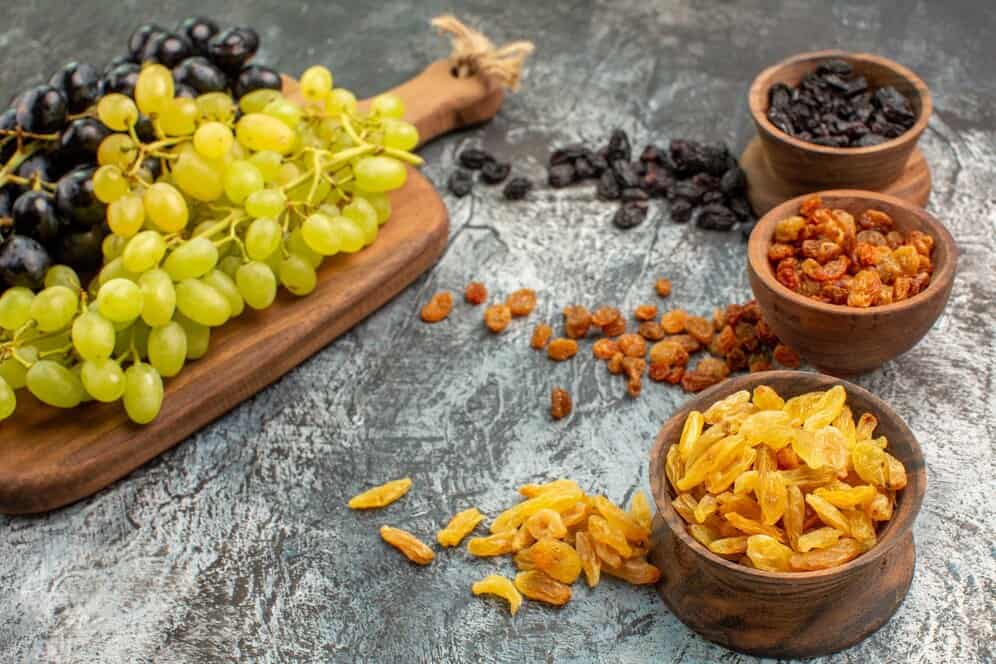Colorful fruits are often richer in antioxidants because they contain more flavonoids, golden raisins have more of some flavonoids than regular raisins, so choose your raisin type based on your health goals.
A single-serving box of raisins is a practical, satisfying, nutritious snack. The dehydration process depletes grapes of some nutrients, leaving them low in vitamin content, but they contain antioxidant flavonoids, pigments that give plants their color, that offer health benefits. Although colorful fruits are often richer in antioxidants because they contain more flavonoids, golden raisins have more of some flavonoids than regular raisins, so choose your raisin type based on your health goals.
Vitamins and Minerals
Golden and regular raisins are nearly identical in terms of most nutrients and daily value. A 1.5-ounce, single-serving box of either provides about 130 calories, 1.7 grams of fiber, 1.5 grams of protein and 25.5 grams of natural sugar. Each gives you less than 5 percent of your recommended daily intake for calcium, iron, magnesium and most B vitamins. Each provides 5 to 10 percent of the potassium and phosphorus you need each day.
Cancer and Heart Disease Prevention
Kaempferol is a flavonoid that may reduce your risk of developing cancer and cardiovascular disease. According to authors of a 2012 “Mini-Reviews in Medicinal Chemistry” review paper, kaempferol acts as an antioxidant, anti-inflammatory and antimicrobial agent, and it may help prevent nerve disorders, diabetes and osteoporosis. Golden raisins have 1.69 milligrams of kaempferol per 100 milligrams of weight, providing 169 times more kaempferol than regular raisins, which contain .001 milligrams of kaempferol per 100 milligrams.
Antihistamine and Anti-Inflammatory Benefits
Golden raisins may benefit people with allergies. Quercetin, a flavonoid in grapes, has antihistamine and anti-inflammatory properties and may help prevent heart disease and cancer, according to the University of Maryland Medical Center. Although red and green raw grapes each have a little over 1 milligram per 100 milligrams of food weight, the drying process causes red grapes to lose quercetin and green grapes to gain it. A 1.5-ounce box of golden raisins has 881.5 milligrams of quercetin, nearly 10 times the amount of quercetin in the same serving size of regular raisins.
Improved Brain Function
Regular raisins are richer in catechins, a powerful antioxidant phytonutrient that may also help you oxidize fat, according to the University of California’s Center for Health and Nutrition Research. Catechins in raisins may also improve your cognitive function, according to researchers from a “Journal of Neuroscience” study published in 2012. They gave a grape-derived preparation to mice and concluded that the catechins in it improved the mice’s learning and memory capabilities. They suggest that catechins may help people with Alzheimer’s Disease. Each 100 milligrams of regular seedless raisins contains .42 milligrams of catechins, while golden raisins are not a significant source of that phytonutrient.



